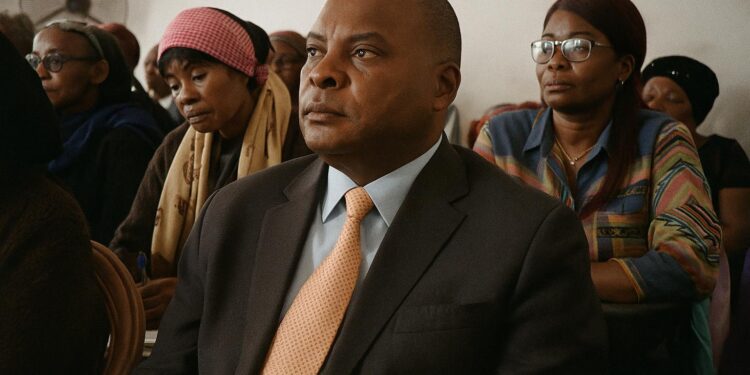A measured certification process
The National Independent Electoral Commission, acting in concert with the Ministry of Territorial Administration, released its provisional list of recognised parties for the 2025 legislative and local contests at the close of the second quarter. Among the ninety-seven entities vetted, the Union des Démocrates Humanistes – Yuki (UDH Yuki) was formally retained, an outcome welcomed by its executives after several months of administrative due diligence. Officials inside the commission note that all parties were asked to update their charters and submit audited membership rolls to ensure full compliance with the 2022 Law on Political Associations, a statute that tightened transparency rules while maintaining an open-door posture toward ideological diversity. As one senior commissioner observed in a background interview, “the objective is not exclusion but professionalisation.”
Diplomatic observers in Brazzaville view the certification as part of a deliberate effort by the authorities to signal inclusiveness to regional partners and multilateral lenders. The African Union’s most recent governance report on Congo, released in Addis Ababa in February, highlighted incremental progress in electoral administration. By retaining UDH Yuki—a party that, in the 2017 presidential race, mobilised an urban, youth-centric constituency—the commission underscores an image of continuity tempered with institutional rigour.
Legacy of Guy-Brice Parfait Kolélas
UDH Yuki’s survival is inseparable from the memory of its founder, Guy-Brice Parfait Kolélas, who finished second to President Denis Sassou Nguesso in the 2016 presidential election and succumbed to COVID-19 complications while campaigning in 2021. Kolélas’s charismatic posture and calls for a social-liberal contract garnered sympathy that translated into a resilient organisational footprint even after his passing. In April 2022, the party’s congress elected his younger brother, Destinée Hermella Kolélas, as interim coordinator—a choice aimed at preserving brand coherence while opening the door to generational renewal.
Analysts at the Congolese think tank CERED point out that many mid-level cadres were trained in municipal technocracy and have since cultivated relationships with provincial governors, making a quick revival plausible. “UDH Yuki no longer depends on a single figure,” contends political scientist Jean-Philippe Okemba, adding that its policy committees have quietly expanded their expertise in health financing and agricultural value chains. Such thematic pivoting aligns with government priorities and mitigates the risk of ideological confrontation, a calculation that may have eased the certification process.
Government’s pluralism agenda
Within the presidential majority, officials underscore that pluralism is a constitutional imperative rather than a concession. A senior adviser at the Palace of the People stressed that “political competition remains compatible with stability,” invoking the 2022–2026 National Development Plan’s call for “concerted governance.” The inclusion of UDH Yuki is therefore framed as evidence of a maturing polity rather than a tactical gesture.
Internationally, Brazzaville’s calibrated openness dovetails with its quest for development financing. In a recent memorandum, the International Monetary Fund acknowledged the authorities’ willingness to “enhance civic participation,” an item that, while not a formal conditionality, resonates with creditors’ transparency metrics. By maintaining a diverse roster of parties, the government strengthens its negotiating hand without compromising its strategic objectives. Diplomats from Paris and Brussels interviewed for this article privately concede that Congo’s political ecosystem, though imperfect, now offers predictability—an asset prized by investors eyeing hydrocarbons, timber and digital infrastructure.
Electoral timelines and diplomatic stakes
The legislative ballot is set for July 2025, with municipal rounds to follow in September. The electoral commission intends to pilot biometric voter cards in three departments—a cautious rollout designed to avoid the logistical pitfalls that beset neighbouring states. United Nations technical advisers dispatched from the Regional Centre in Libreville describe the timetable as “ambitious but feasible,” provided that procurement contracts for scanners and secure printers are finalised by December. For UDH Yuki, early confirmation on the party list allows a head start in candidate selection, particularly in Brazzaville’s third arrondissement, where the party’s 2017 campaign was most resonant.
Diplomatic missions will watch the cycle closely. The United States embassy, in its last human-rights report, recommended “continued engagement with recognised political parties to foster peaceful competition.” The European Union, for its part, plans to field a light technical observation team, mindful of the delicate balance between sovereignty and oversight. Under these spotlights, Congo’s ability to manage a pluralistic yet orderly electoral environment could strengthen its credentials in sub-regional diplomacy, where Brazzaville often mediates across the Congo River.
Economic stakes and policy orientation
Beyond symbolism, UDH Yuki’s re-registration may influence economic discourse. The party’s policy bureau is expected to release a white paper on fiscal decentralisation, arguing that local councils should retain a higher share of property tax revenues to fund health posts—an argument that echoes elements of the government’s own social agenda. Finance Minister Rigobert Roger Andely recently hinted at “innovative fiscal pacts” with local authorities, signalling potential convergences. “If proposals are constructive, we remain open to cross-party dialogue,” he stated after a cabinet retreat in Oyo.
Such intersections illustrate how Congo’s political landscape, while firmly anchored by the presidential coalition, remains permeable to programmatic input from recognised opposition actors. For diplomatic and business interlocutors, this permeability translates into greater clarity on policy trajectories, from sovereign debt restructuring to the burgeoning energy transition partnerships with China and the United Arab Emirates. The presence of a structured, policy-minded opposition like UDH Yuki could, paradoxically, enhance investor confidence by embedding a wider spectrum of accountability mechanisms within the legislative process.












































